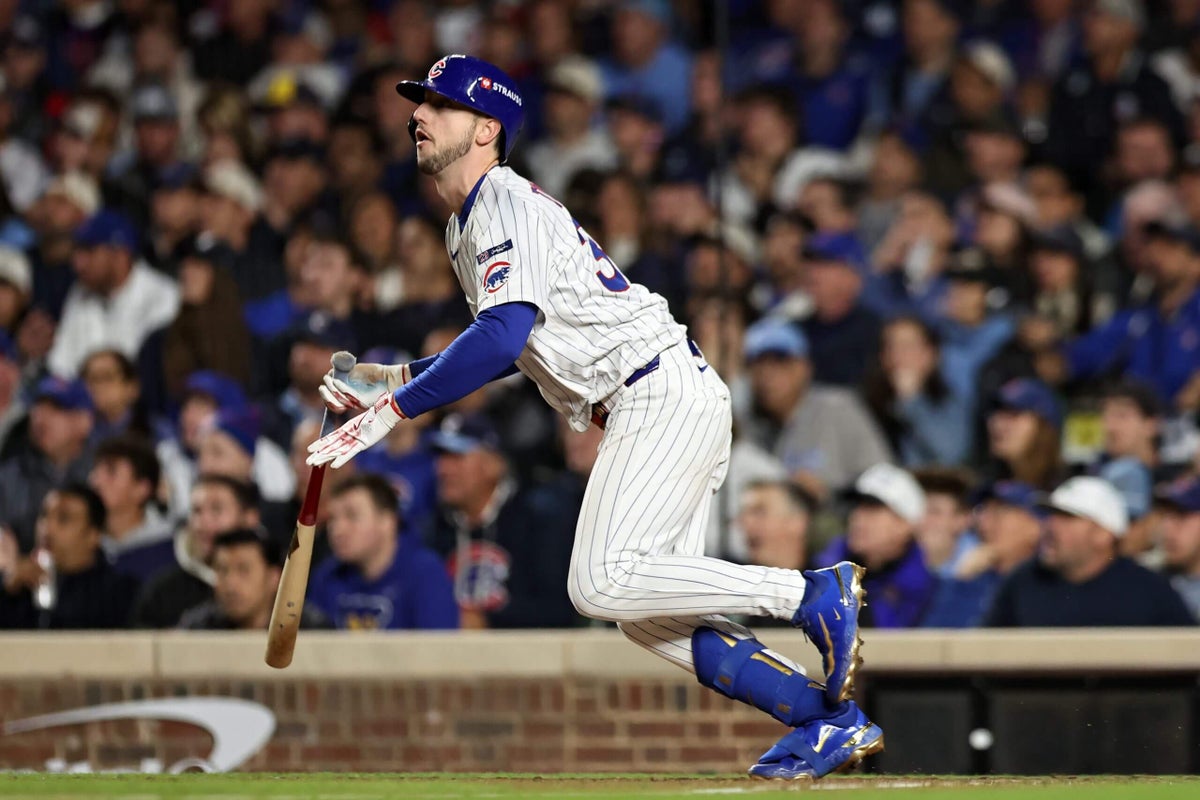CHICAGO — In trading for Kyle Tucker, the Chicago Cubs gained an exclusive negotiating window with the All-Star outfielder, an entire season to make their recruiting presentation to the soon-to-be free agent.
Even if it made more sense for Tucker to first explore his options — and for the Cubs to not bid against themselves — at least the player would get a better feel for the situation and the club would have inside information on what makes him tick.
In theory, at least, that’s how this one-year partnership could have worked. But in listening to separate end-of-season reflections from Tucker and Cubs president of baseball operations Jed Hoyer, both sides sound detached.
Part of that is how the player and the executive are wired for their jobs.
The patience and sense of calm Tucker displays in the batter’s box will also serve him well as a free agent. Hoyer’s disciplined, unsentimental approach rebuilt the Cubs into a playoff contender, earning him the contract extension that was once an open question last offseason when he acquired Tucker from the Houston Astros in a win-now trade.
As Hoyer sat at the front of the Wrigley Field interview room for Wednesday’s debrief with the Chicago media, the question went like this: Do the Cubs know what Tucker wants as a free agent and for the rest of his career?
“Kyle had a good experience here,” Hoyer said. “He certainly enjoyed playing in Chicago. I think that Wrigley and our fans made a huge impact. But, ultimately, Kyle has a big decision. He’s earned the right to not only be a free agent but to be a coveted free agent. I would expect that they would play their cards kind of close to the vest.”
Though Tucker made sincere efforts to connect with teammates and become part of the clubhouse fabric, his low-key personality can sometimes be hard for others to read. Tucker’s agent, Casey Close of Excel Sports Management, also has a reputation for being discreet.
After 14 seasons as a top executive with the Cubs, Hoyer’s style is clearly established. The emotions that drive decisions at the top of the free-agent market — sentimentality, desperation, urgency — are dulled by the organization’s adherence to process.
Some of those outside forces already appear to be lining up for Tucker, even after a quiet, injury-plagued second half in Chicago.
Back in Tucker’s hometown, the Tampa Bay Rays have a new ownership group potentially looking to make a splash. Eager to make changes and willing to spend big money, Philadelphia Phillies owner John Middleton could see Tucker as the catalyst for a roster makeover. Tucker is the No. 1 item for “Ten steps the New York Yankees should take to return to the World Series in 2026.”
“Not connected to Kyle,” Hoyer said, “I just think, in general, you have to evaluate. You have to start everything that we do with a valuation of the player, and focus on that valuation. And then, what’s that worth to the organization? That’s the backbone.
“In my career, when you make decisions that are based on your valuation and how you value the player, then it sort of takes some of the other stuff out of it. You make better decisions. If you’re reacting to how things are going around you, I think that’s when you can make a real mistake.”
During a media session that lasted almost 50 minutes, Hoyer indicated he has not yet begun serious discussions with Cubs chairman Tom Ricketts and president of business operations Crane Kenney about next year’s baseball budget. Hoyer declined to speculate on whether the major-league payroll would receive a boost after Wrigley Field hosted two playoff rounds.
Sensing a developing narrative — Wrigley Field is becoming “a hitter’s worst nightmare” — Hoyer dismissed those ballpark conditions as random and unpredictable.
Although Tucker posted a .747 OPS over 66 games at the Friendly Confines — a drop-off that could become a consideration for a free agent — Hoyer pointed out that left-handed hitters Michael Busch and Pete Crow-Armstrong produced monster offensive seasons. Busch generated 38 home runs (home and road numbers combined, including the postseason) and Crow-Armstrong endured a second-half slump and still finished with 31 homers, 37 doubles and 35 stolen bases.
In weighing the kind of long-term commitment Tucker will be seeking, Hoyer acknowledged the Cubs have operated cautiously while approaching the expiration of baseball’s collective bargaining agreement, which runs through the 2026 season. At the moment, Gold Glove shortstop Dansby Swanson is the only Cubs player on a fully guaranteed contract for 2027 and beyond.
“That’s been some part of our decision-making,” Hoyer said. “We’ve talked about that a lot. As we get closer to the end of the CBA, that conversation probably gets louder and louder.
“It’s something that you have to consider. We don’t know what’s going to happen. There’s real uncertainty there, for us and for 29 other teams.”
More than a front-runner or the team with home-field advantage, it seems as if the Cubs will be one of 30 clubs with an opportunity to make a pitch to Tucker.
“When we were at our best, Kyle was at his best,” Hoyer said. “There’s no question he had a huge impact on this team. Obviously, he dealt with some injuries and struggled a bit in the second half. But when you take the totality of the season, he had a huge impact, as we hoped he would.
“Everyone can use a guy like Kyle Tucker. Everyone gets better by having a player like that. We’ll certainly be having those conversations.”

